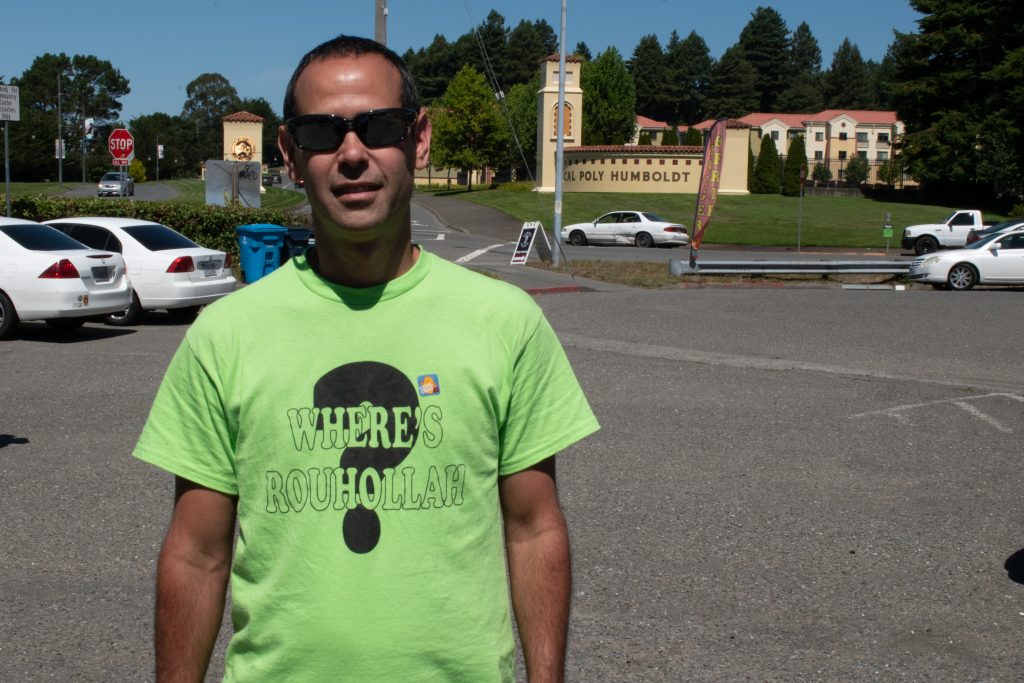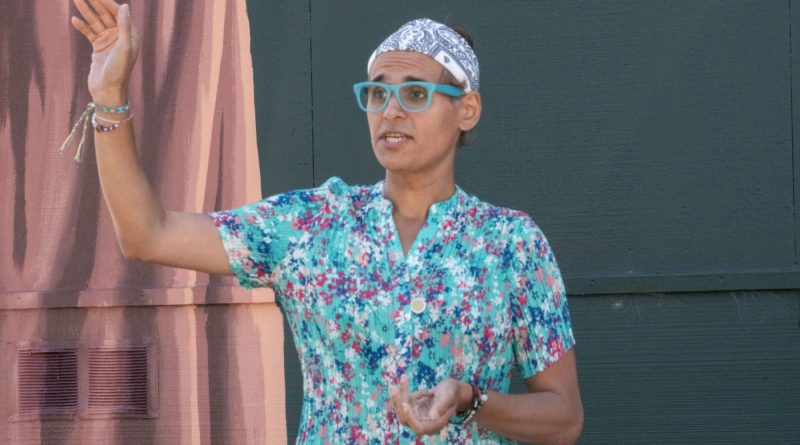Cal Poly Humboldt Professor Rouhollah Aghasaleh continues to face temporary suspension
After three years of teaching at Cal Poly Humboldt, Assistant Professor Rouhollah Aghasaleh’s fourth year is not what they expected. On April 30 under the administration of former President Tom Jackson, Aghasaleh received their first letter from the university issuing a temporary suspension after arrest for presence in a non-violent pro Palestine protest on campus. The suspension barred them from campus and prohibited communication with students, including student press. Due to an ongoing investigation, the suspension extended to June 21 then again to Aug. 16. As of now, if the university decides to not place further extension, Aghasaleh could return to campus on Oct. 28.
Aileen Yoo, the Director of News and Information at Cal Poly Humboldt’s Marketing Communications department stated that the university cannot comment on personnel matters in regards to information about Aghasaleh’s reinstatement.
Students, faculty and community members gathered in support of Aghasaleh on Aug. 26 for their first teach-in event that offers a learning space every Monday and Thursday from 12-3 p.m. in the D Street community parking lot.
At the first teach-in with 19 particpants, attendees started by creating an open dialogue for people to share what was on their mind. Aghasaleh handed out copies of “Edwin and Phyllis” by Lynn Fendler, a written work highlighting a conversation with a teacher and prospective educator.
Community member Shannon Ragan attended the first teach-in to be a part of the learning environment; they were grieving the loss of Aghasaleh’s suspension.
“As a community member and having personal relations to Rouhollah and people who care about them, a lot of us are kind of grieving the space that has been taken from us and that is continuously trying to be,” Ragan said. “Teaching is super important to Rouhollah, it is a part of their identity. The fact that Rouhollah is considering us as not just a student and teacher relationship, but that we are all working together and we are all colleagues, that sort of even learning place is something that I have desperately been needing more of. That’s why this space is important.”

Attendee and Associate Professor of Sociology, Michihiro Sugata, recognizes the impact of Aghasaleh’s absence on campus as the disciplinary process continues into the new semester.
“While I understand that it is important for the university to review the events that occurred during that week, I believe that the disciplinary process thus far has been slow moving and it’s very frustrating for those of us who would like to see Rouhollah back on campus,” Sugata said. “It seems that the administration is more focused on instilling new rules and regulations to suppress free speech, free thought and free expression and I think the extended suspension of Rouhollah is part of that structure.”
Sugata reflects on his role as a professor amidst campus protests and the suspension of his colleague.
“From my perspective being actively engaged with the students who were protesting, my role as a professor was to support students and make sure first and foremost that the students were safe, and Rouhollah was doing the same,” Sugata said. “Rouhollah was there because they were very concerned about student safety.”
During the protests in May, Rick Toledo, a graduate student at Cal Poly Humboldt, was a legal observer and representative of the Students for a Democratic Society, a national student-led activist association. Alongside Toledo, Aghasaleh was actively in meetings with students and administration working to negotiate solutions and advocate for a peaceful approach for further action.
Toledo hopes for a reconsideration of Aghasaleh’s ability to return to campus, noting the harmful reflection it poses.
“I think there should be an immediate reinstatement of Professor Rouhollah, I don’t believe that they should have ever been suspended to begin with,” Toledo said. “By indefinitely extending the suspension it sets a dangerous precedent to what they can do to professors without good reasoning and without an actual investigation.”
Believing the suspension to be unnecessary, Toledo notes the frustration of those he has interacted with that are knowledgeable about Rouhollah’s suspension.
“Everyone who knows of what is happening is upset by it,” Toledo said. “Specifically people who were in their class, or other professors who worked with them and people who knew them from the occupation as someone who was trying to mediate and make sure that people were safe at the risk of their own safety.”
Toledo believes that protecting the students and advocating for their safety was the main goal of Aghasaleh’s choice to remain at the protests. Aghasaleh’s courage inspired Toledo amidst the uncertainty and distress that filled campus.
“They were there taking risks just because they were so concerned for students and that things were educational and moving in a positive direction to the best of their abilities. I don’t think any professor should be reprimanded for that,” Toledo said. “I think what they did was honorable and I wish more professors had been as brave as they were.”



